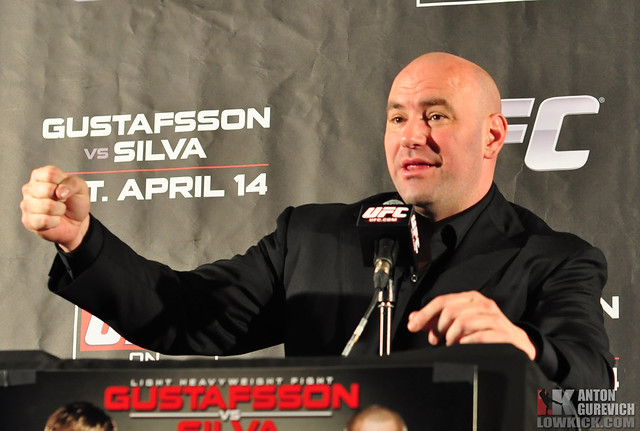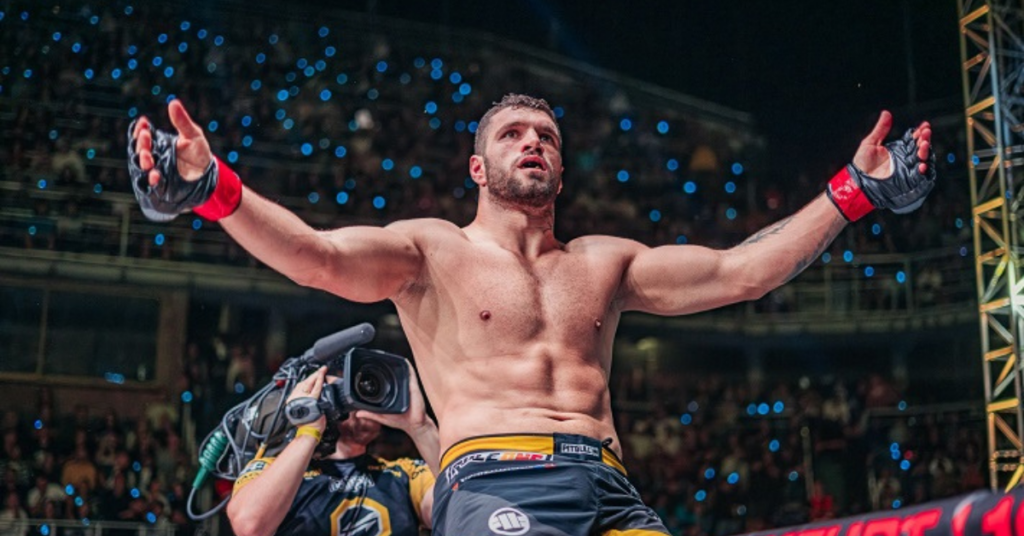Is the UFC putting on too many cards to sustain growth of MMA?
Lately the debate has come up over the UFC putting on too many events and spreading itself too thin, resulting in a number of lackluster cards. Of course, ultimately the UFC is a business, and on paper, the more events they put on, the more opportunity there is to make money. While this may be true in the short run, is that the best strategy to sustain the popularity of Mixed Martial Arts? Or will the watering down of cards and the subsequent run of injuries serve to cause a plateau for the sport? There are many aspects to discuss about this topic, and perhaps there is not one set answer. Let’s examine some of the details and points of view surrounding this discussion.
When the UFC was quickly gaining popularity around 2005-2006 with stars like Chuck Liddell, Randy Couture, Rich Franklin, and the debuting Anderson Silva, it seemed like the cards presented were blockbuster fights that fans were truly connected to. It also seemed that injuries did not take such a harmful toll on the cards back then. Personally, I thought that with the cards more sporadically placed, there was more anticipation because the fights seemed to mean something more back then. Now, there is an event almost every weekend. With the UFC signing a long-term deal with powerhouse cable network Fox, the UFC’s exposure is at an all-time high. However, is this necessarily the best thing for the promotion and the sport? I believe not, as it seems that for every action-packed card such as UFC on Fox 4, there seems to be a few bores like UFC 149 or UFC on FX:Guida vs. Maynard. This usually was not the case in years past, even last year.
While injuries are a part of combat sports that no one can stop from happening, the advent of so many cards leaves it tough to find suitable replacements for those forced to pull out. With a talent pool of so many fighters, the level of competition is also at an all-time high. There is not a lot of room for error as a fighter these days. I will always have respect for fighters and their rigorous schedules, but the truth is, casual fans of the UFC who still remember Forrest Griffin vs. Stephan Bonnar have become turned off to the sport because there are so many cards. It becomes hard to follow for the non-hardcore. UFC 150 was a good example of the dilution. While Buddy Roberts, Max Holloway, and Justin Lawrence are all excellent, game fighters, a card in 2006 would most likely not have featured fighters with low name recognition to the average fan. Nothing taken away from the fighters themselves, the events were just full of more big-name fights back then. Also, casual fans have become bored with a lot of wrestling-dominated action that has become commonplace.
So can the UFC retain this breakneck pace of putting on events while dealing with injuries and other unforeseen hangups? I really don’t think so. The ratings of certain FuelTV and FX cards would suggest the same. Perhaps the champions at the top should fight more often, as those fights are the obviously draws the UFC needs. In talking to casual fans around town, it seems that many former viewers have become turned off by the sheer number of events where they recognize no one. I like all the events because I love MMA, but I don’t think that such an aggressive strategy is sustainable for the future growth of the sport as a whole. What do you think? As the talent pool grows, should there be more and more events? Or should it be scaled back by the UFC to ensure a quality product for the fans?







